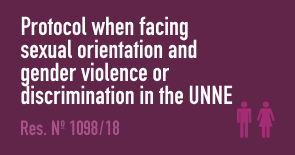Since its creation on December 14th 1956 up to date, the Universidad Nacional del Nordeste (UNNE) has as its basic aim to satisfy the higher educational cultural needs of the northeast region of the country, among the autonomous regime established in the Republic of Argentina. The University has contributed to the constitution of the universities of Misiones, Formosa and Chaco Austral, and it is recognized as a crucial and pioneering institution for the regional development.
The UNNE states a permanent commitment as a public and social service, responsible for providing equal educational opportunities. The UNNE has its headquarters in the provinces of Corrientes and Chaco, with three university campuses and, due to the creation of new academic extensions, the educational service has been guaranteed on remote areas of the region.
UNNE´s performance is narrowly related not only to the evolution of the higher education in Argentina, but also to the political vicissitudes of the country and to the development of the provinces and cities where the University has its headquarters. By the times its geographical and institutional configuration were defined, the UNNE considered the reform of its academic structures and curricular systems in the 90´s.
Nowadays, the UNNE embrace the major critical mass of the region and is one of the universities with more matriculation in the country, with an outstanding and wide academic offer (graduate and postgraduate), with an intense scientific production across 337 groups of research, and an important work in development and transference among the community.
In addition, the UNNE is one of the most active universities in Argentina in terms of agreements with foreign universities as regards students and teaching mobility. It promotes the environmental, political-institutional, sociocultural and economic-productive development and has a strengthened space for cooperation with other members of the society.
The institutional management is focused in its regional context and works to achieve a great impact on the society, from the perspective of a collective construction and a critical vision of the social, cultural and economic diversities; towards the strengthening of the University in terms of knowledge, training and an active intervention in the reality. The aim is to contribute to the development of the region and the Nation through the generation of processes of sustainable development, which are socially inclusive and of great impact in the construction of active citizenship.









